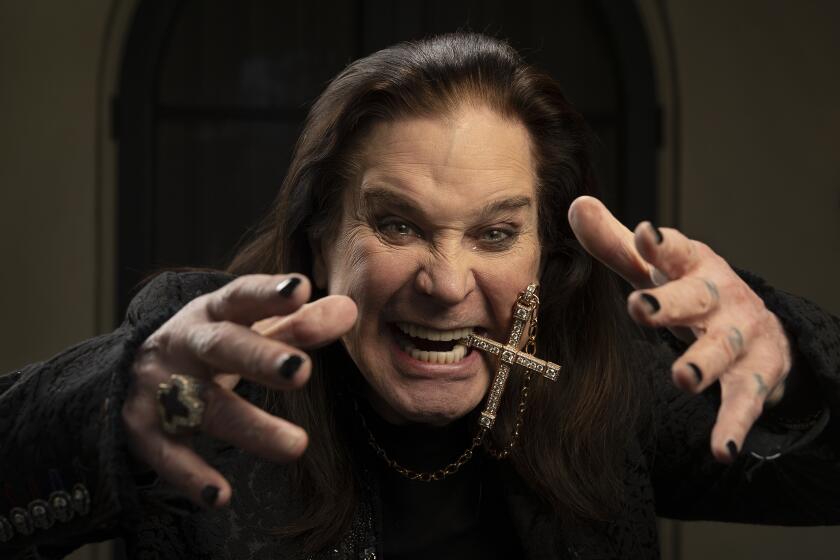BOBBY WATSON : Paying Dues Pays Off for Saxophonist
- Share via
“Paying your dues” is a phrase that comes up often when talking with alto saxophonist Bobby Watson. In jazz parlance, its meaning is simple and direct: doing whatever grunt work it takes to get your career under way.
The 38-year-old Watson, a performer who has labored long and hard to reach his present level of success, is a prime example of this philosophy.
“I started small and worked my way up,” he explains. “I worked at sorting out what I wanted to do and what I didn’t want to do--what I could do and what I couldn’t do--while I was working in clubs where there were only 15 or 20 people in the audience. So by the time I was working in larger places, I had a good sense of what direction I wanted my music to go.”
He was definitely aided in his quest by a five-year apprenticeship with Art Blakey’s Jazz Messengers. Serving as the group’s musical director from the late ‘70s through the mid-’80s, Watson made the most of the opportunity. With Blakey, he matured as a player and a composer and gained the skills necessary to be a bandleader.
“I went to college to get my diploma, and worked with Art to get my education,” says Watson, a mid-’70s graduate of the University of Miami’s jazz program.
He believes that his newest album--”Present Tense,” his 14th release but his first for Columbia Records--represents the crowning achievement of a rigorous climb upward through the world of jazz.
“It brings together all the things I grew up with--Motown, rhythm and blues, soul music, Albert Ayler, world music and ‘Trane,” Watson says. “It’s a sort of synthesis that expresses my desire to keep the spontaneity of jazz without losing the audience. I think it’s possible to be as adventurous as some avant-garde music but do it with signposts in the music that keep the audience in touch with what’s happening.
“But I could never have gotten to the point of making this kind of music without taking all those tough steps in between.”
In contrast, Watson views the overnight success enjoyed today by many younger, traditionalist players with a somewhat jaundiced eye, and he wonders whether they are missing essential experiences.
“When I was their age, I was playing mainstream stuff too, because I wasn’t worried so much about trying to do my own thing as I was about trying to get a handle on things that had been done before,” he says. “That’s what you’re supposed to be doing at that age. The difference is they’re getting recorded--on big labels--while they do it.
“That can be a lot of pressure--especially at that age. Jazz takes a lot of trial and error before you find your own voice. It’s crucial in this music that you get the chance to pay your dues.”
More to Read
The biggest entertainment stories
Get our big stories about Hollywood, film, television, music, arts, culture and more right in your inbox as soon as they publish.
You may occasionally receive promotional content from the Los Angeles Times.










